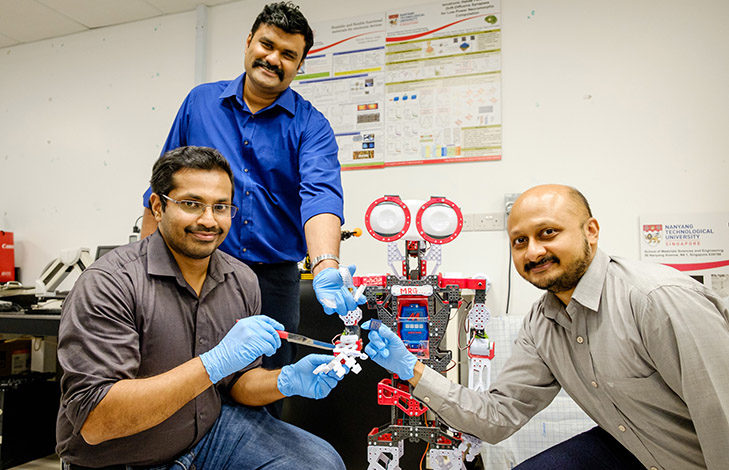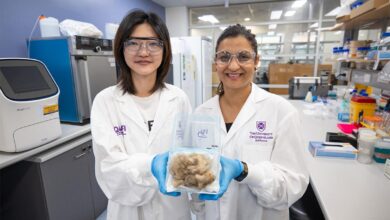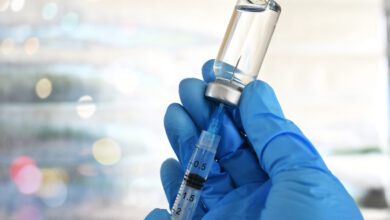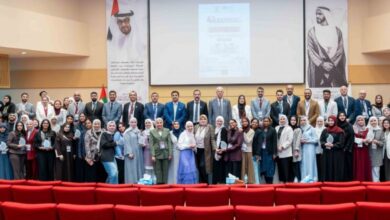Scientists develop ‘mini-brains’ to help robots recognise pain and to self-repair

Using a brain-inspired approach, scientists from Nanyang Technological University, Singapore (NTU Singapore) have developed a way for robots to have the artificial intelligence (AI) to recognise pain and to self-repair when damaged.
The system has AI-enabled sensor nodes to process and respond to ‘pain’ arising from pressure exerted by a physical force. The system also allows the robot to detect and repair its own damage when minorly ‘injured’, without the need for human intervention.
Currently, robots use a network of sensors to generate information about their immediate environment. For example, a disaster rescue robot uses camera and microphone sensors to locate a survivor under debris and then pulls the person out with guidance from touch sensors on their arms. A factory robot working on an assembly line uses vision to guide its arm to the right location and touch sensors to determine if the object is slipping when picked up.
Today’s sensors typically do not process information but send it to a single large, powerful, central processing unit where learning occurs. As a result, existing robots are usually heavily wired which result in delayed response times. They are also susceptible to damage that will require maintenance and repair, which can be long and costly.
Read full story at NTU Singapore
Photo by NTU Singapore




